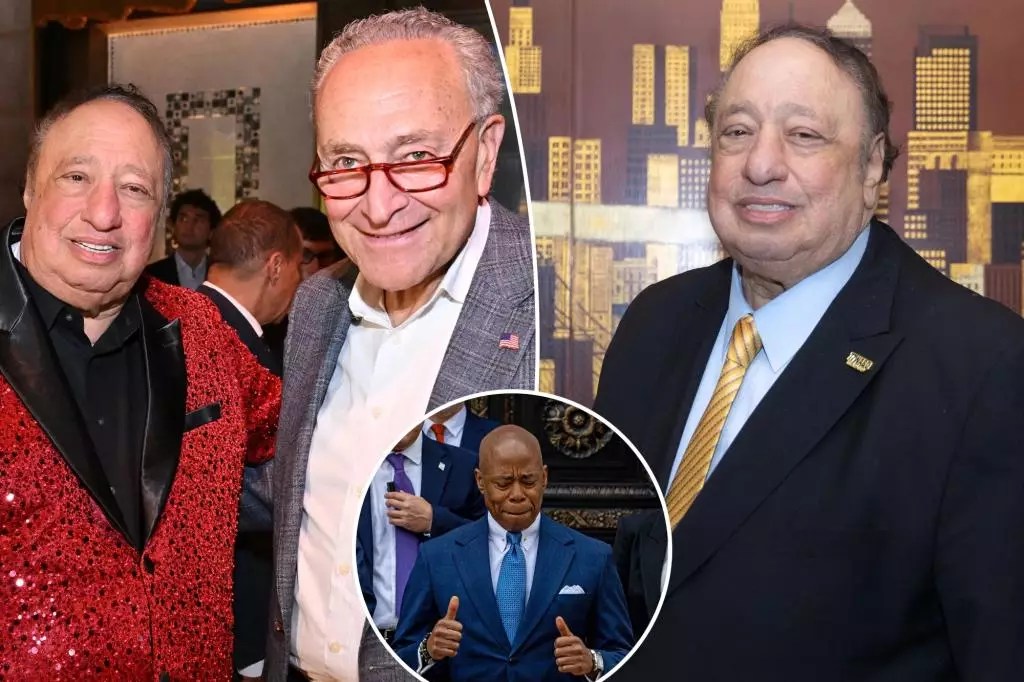As discussions swirl around the future of New York City’s leadership, billionaire entrepreneur John Catsimatidis finds himself at a crossroads. Frequently mentioned as a potential Republican candidate should current Mayor Eric Adams be forced to step down, Catsimatidis remains noncommittal about entering the race. In recent commentary, he expressed uncertainty about his political ambitions, stating, “I’ve made no decisions yet,” underlining the complexity of a decision that could thrust him once again into the political spotlight. The ambivalence he demonstrates is not merely a reflection of personal indecision; it hints at broader themes of ambition, public service, and the volatile nature of political dynamics in one of the world’s most challenging arenas.
Catsimatidis, the owner of 77 WABC Radio and a supermarket magnate, has acknowledged the significant public interest in his potential candidacy. “I am digesting it,” he remarked, recognizing that his profile as a successful businessman and former mayoral candidate places him in an advantageous position among New York’s Republican hierarchy. The sentiment among the city’s county chairmen appears to lean heavily in his favor, with reports indicating that a considerable number of these political leaders are eager for him to take the plunge into the race. Such assertions suggest a crumbling confidence in the current administration, exacerbated not only by socioeconomic challenges but also by controversy surrounding Adams, particularly after his recent indictment related to federal scrutiny.
This budding pressure could drive Catsimatidis to either embrace or reject the prospect of leading New York City, and his assertion that he’s receiving “more than hundreds” of requests to run illustrates the palpable momentum building behind him. Notably, it seems that his own hesitance stems from a genuine concern: “You know what I’m most scared of? I might win.” This self-reflection presents a crucial consideration—where does ambition intersect with the obligation to serve the public good?
The current political climate in New York City is fraught with difficulty. Mayor Eric Adams has maintained a firm stance against resignation, even amid significant legal challenges. He has asserted, “If I am charged, I am innocent,” echoing a spirit of defiance that resonates in American politics today. In the aftermath of Adams’ ongoing issues, New York Governor Kathy Hochul’s intervention could incite a special election, though such scenarios remain speculative and fraught with uncertainty.
If Catsimatidis were to embark on a campaign, he would find himself navigating a landscape marked by both tradition and transformation. Historical precedence shows that former Republican mayors, such as Rudy Giuliani and Michael Bloomberg, emerged during tumultuous times, specifically during periods characterized by high crime rates and widespread public concern. Catsimatidis’s supporters draw parallels to these eras, emphasizing a need for strong leadership in navigating present-day challenges.
One of the standout characteristics of Catsimatidis is his moderate stance within the Republican party, positioning him as a candidate who could appeal to a broad spectrum of voters. The ability to straddle differing political ideologies could be pivotal in a special election, particularly in a city as diverse and politically complex as New York. Commentators have remarked on Catsimatidis’s capacity for collaboration—a trait described as essential for any emerging leader given the gridlock often witnessed in urban governance.
Interestingly, his ties to notable political figures, including former president Donald Trump, position him as a candidate with potential access to significant funding and political backing. The mention of a possible cooperation between a Catsimatidis administration and a Trump presidency highlights the intricate web of relationships that empower or constrict political figures in their pursuits.
While Catsimatidis has brushed off rumors of immediate political aspirations, the consistent encouragement he receives from within the party suggests that the dialogue will only intensify. Should he ultimately decide to participate in a mayoral campaign, it would be a testament to his commitment to the city he holds dear. Drawing on his extensive business experience, political connections, and the backing of county leaders, Catsimatidis could emerge as a formidable contender, equipped to address the pressing issues facing New York City.
In the end, whether Catsimatidis takes up the mantle of mayor remains to be seen. Yet, his narrative illustrates a deeper insight into modern-day political culture in New York—one where every decision drips with the weight of public expectation, past experiences, and an unyielding love for the city that defines its leaders’ legacies. The possibility of his candidacy evokes a critical question: how do we measure the motivations behind those who aspire to lead, and what role does personal interest play in shaping the public good?







Leave a Reply